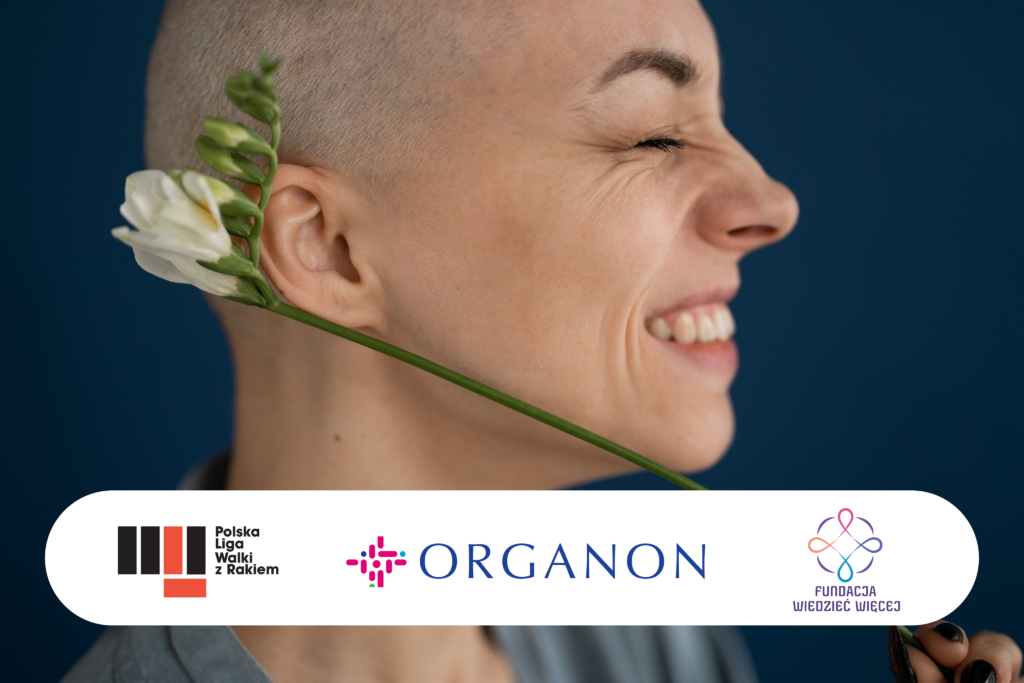
An article by Ania Wietrzykowska, a psychologist and sexologist, expert in the iYoni App.
Human sexuality develops based on the relationship with oneself and others, through the exploration of one’s body, its reactions, and needs. An important influencing factor is the cultural context. In different regions of the world, we encounter different beliefs, standards of attractiveness, and norms surrounding issues related to sexuality. Similarly, when illness enters a person’s life, it is perceived differently both culturally and individually. It means something different to everyone.
Currently, cancer is perceived as a chronic illness. With the advancement of medicine, the survival rates of patients have increased, leading to new dilemmas in oncological care. This time, focusing on improving the quality of life after cancer. This also applies to sexual function in the face of treatment-related consequences. The scientific field that addresses this interdisciplinary topic is onco-sexology.
Quoting the title of Michał Lew-Starowicz’s book, “Sex Keeps Us Alive: Sexual Rehabilitation in Somatic Diseases,” it is precisely activities towards life (such as sex) that can distract us from cognitive, somatic, and emotional issues related to death. It all starts with our perception of people with cancer. In our cultural circle, this disease still commonly associates with a life sentence and the necessity to abandon everything we have for treatment. Similarly, sex, which in the face of a condition as serious as cancer, “should not be” seen by us as significant. Just as the sexuality of older people is silenced, the sex of sick and disabled people is an absent topic. Sex is associated with healthy, young, and attractive individuals. But what about when various random events, such as cancer, strike us? Should we really give it up then and redirect all our energy towards overcoming the disease? Absolutely not!
We are sexual beings throughout our lives. Therefore, it is natural that sex may look different at each stage of life. The situation of illness may create various new circumstances. Already at the diagnostic stage, oncology patients face unpleasant procedures and interventions concerning their bodies. When treatment begins, they become dependent on others. During hospitalization, there is undressing, dressing, catheterization, and nursing activities performed by shift-working staff. Patients are thus suddenly placed in a situation where their bodies are touched, moved, rearranged by strangers. During the course of treatment, their bodies change, which also affects their sense of attractiveness. They lose hair, lose weight, develop oral ulcers, undergo various surgeries, sometimes requiring the removal of body parts. On the one hand, they think they are in the worst shape they could be in terms of attractiveness. On the other hand, at this moment, they cannot hide from the world with their appearance; they are in a situation of social exposure, surrounded by more new people than ever before. They also have severely limited opportunities to fulfill their desires in hospital conditions. They cannot have sex with their partner, nor do they have space for unrestricted masturbation due to the presence of other people in the room. And if they had a satisfying sex life before the illness, they now experience a loss of an important aspect of themselves. They lose a significant resource at a time when they encounter one of the most stressful situations, which is illness.
More than half of men after a cancer diagnosis experience a deterioration in sexual quality of life and experience symptoms of sexual dysfunction (Pysz-Waberski et al., 2022). This disease can affect human sexual function both indirectly and directly. Indirect impact may involve changes in self-perceived attractiveness, femininity/masculinity in the eyes of the partner, and others. Direct impact is related to medical consequences of treatment, such as side effects of chemotherapy, radiotherapy, surgery, etc.
In women, the highest percentage of sexual dysfunction is observed in cases of gynecological cancers – 78% (Zając et al., 2023). Oncology patients experience, among other things, decreased libido, vaginal dryness, dyspareunia, difficulty achieving orgasm. It is also worth noting that a cancer diagnosis increases the risk of a depressive episode, which in turn also affects human sexual function and increases the risk of sexual dysfunction. As we can see, there are many new obstacles for patients and even more dilemmas: where and whether to talk about this during treatment?
Undoubtedly, it is worth reporting changes, especially those unwanted regarding health – including sexual health – because anything that can improve quality of life can support recovery. Currently, medicine proposes a holistic treatment system involving many specialists from different fields. A psychologist, urogynecological physiotherapist, and sexologist may also be needed. It is worth increasing patients’ self-awareness and informing them during oncological treatment that they can express their concerns and ask questions, and if a given doctor cannot provide appropriate support within their specialization, they will likely suggest another specialist who could take care of this issue from a medical perspective.
Finally, it is worth adding that sometimes, in the face of a sense of life threat and loss of health, some of us may feel the need to experience something new, fulfill a dream or fantasy, for which there was no place or permission in life until now. And this can turn out to be a beautiful and enriching experience. Also in the sexual sphere. Illness is a difficult experience, but when it appears and confronts us with life, death, happiness, and sadness, sometimes we stop being afraid and start living. And everything that leads towards life brings us closer to healing.